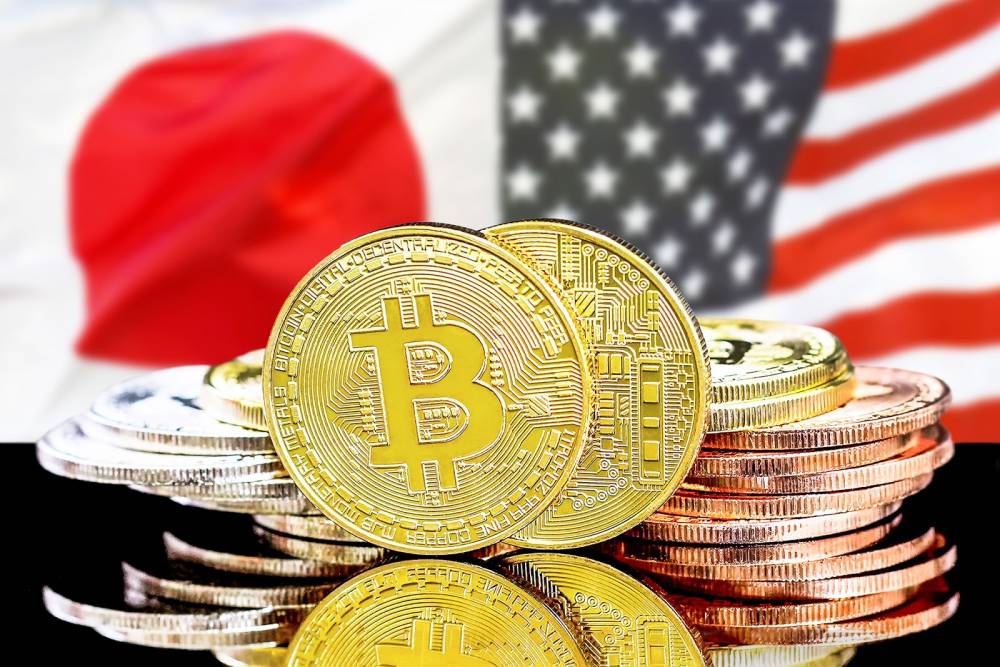Why are Americans more bullish on Bitcoin than Japanese?
Bitcoin is becoming a very popular type of investment in America, but that same sentiment doesn't hold true worldwide.
Even though Bitcoin use is gaining around the world in general, it's taking hold more in some societies than in others.
A recent bitFlyer report shows off some of these trends in detail, where researchers found that 76% of American investors surveyed have a positive view of cryptocurrency, and only 22% of Japanese investors feel the same way. The Japanese, bitflyer finds, are much less likely to invest in anything. They like to keep their money in the traditional form of the national currency.
What's the difference? What’s behind this American mania for new investment opportunities that sometimes doesn’t translate?
A tale of two banking systems
First of all, Japan's banking system is widely seen as a stable one. Hardly anybody would say that about the American banking system, for example, after the financial crisis of 2008. There's the widespread view that the Federal Reserve, with quantitative easing and other strategies, is desperately trying to prop up an ailing concurrency and a moribund market, with lots of volatility and uncertainty to go around. With that in mind, investors are flocking to safe haven assets like Bitcoin and other cryptocurrencies, to avoid taking a bath in the equities market.
By contrast, the Japanese yen is itself seen as a safe haven asset, and something to hold in times of trouble. Not only that, but the Japanese are notoriously risk-averse as a culture. Those two things combine to create a less favorable view of putting your extra money into something like a cryptocurrency that is divorced from the national valuations of a fiat currency.
How deep will Bitcoin penetrate the system?
Take a look at the study to glean more details on how American investment psychology compares to the type of thinking that dominates in Japan or elsewhere. Increasingly, the U.S. is seen as a “cryptocurrency culture,” where financial freedom involves the ability to move value into decentralized financial assets. That’s not a totally unqualified picture, though: some American legislators want to push back against the disruptive power of crypto in general, and the radical notion that Facebook, a dominant social media platform, would introduce its own Libra cryptocurrency was domestically nipped in the bud. However, Americans remain free to invest where they will, and more of them are choosing BTC or some related asset.
All of this type of research shows how cultural attitudes around the world play into not only government policy on Bitcoin and other coins, but investor sentiment as well. The context is important for those who want to understand where cryptocurrency has taken us to date, and where it’s going in the future.







